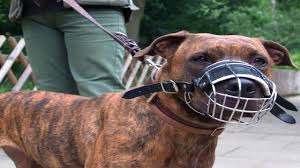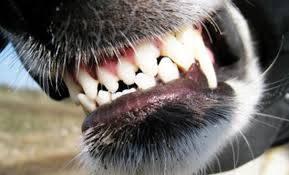What is a Dog Bite Lawsuit?
If a person is bitten by a dog, there could potentially be a dog bite lawsuit claim. While each situation is different, more than likely, if medical treatment was required or the attack caused significant harm, physical or mentally, the individual has grounds to file a lawsuit.
There is a specific statute in Illinois law that defines the qualifications to prove a dog or other animal owner is liable for a bite.
In order to qualify, the injured party must show that:
- The dog or other animal attacked, attempted to attack, or injured the person.
- The person had a lawful right to be in the place he or she was when attacked or injured.
- The dog or other animal was not provoked.
Common Injuries From Dog Attacks
A serious bite is no joking matter, especially considering the sheer power a dog can have when biting someone. 20% of those who are bitten by dogs require medical attention, according to the CDC. Typically, the most common victims are children. Common injuries are:
- Puncture wounds
- Scratches, bruising, or cuts
- Tearing of the muscles
- Fractures
- Amputations, in rare cases
- Head or skull injuries
The public information website, DogsBite.org, reports that the most severe of dog bite attacks can require “$250,000 to $1 million in specialized medical care treatment.” Reconstructive surgery is also often a requirement to fix the lasting damage from the attack.

Strict liability for dog bites in Arizona
While some states require that dog bite victims prove that an owner was negligent, Arizona provides strict liability for dog owners when their dogs bite others in the state’s statutes. Under A.R.S. § 11-1025, dog owners are legally liable to pay damages to victims if they are legally on a public or private property, including the dog owner’s property. People who are bitten by police or military dogs when the dogs are engaged in the following will not be able to recover damages under the strict liability statute:
- Police or military dog bites in response to provocation or while defending itself
- Police or military dog bites while helping to apprehend a suspect
- If the bite occurs during the investigation of a crime
- If the dog bites while a warrant is being served
- If the dog bites to defend another person or a police officer
The strict liability statute only applies to dog owners and not to others who may be in possession or control of the dog when the attack happens, according to the decision in Johnson v. Svidergol. There are other potential causes of action that may be available against people who are non-owners but who are in control or possession of the dogs, which are further explained later in this article.

What To Do After A Dog Bite
- Get medical attention if you need it. After a dog bit or attack, you need to make sure the injury or wound does not escalate in severity or into infection. Go straight to the doctor. Make sure you doctor acknowledges the dog was the cause of injury in any reports or billing paperwork she or he files.
- Get the owners information. If you are able, taking the name, address, and phone number of the owner is important. This might seem awkward for some people who do not like confrontation or who do not think they are going to ask for money, but be prepared in case you change your mind.
- Note any witnesses and get their information If you are able, after the accident take down any names and information of people who witnessed the incident.
- Report incident to your local animal control authority. This is important so that your community can keep records on dangerous dogs. If the dog did not have tags, then animal control will quarantine the dog and make sure he or she is not rabid. If the dog has an owner, tags, and up-to-date rabies shots, this will not be an issue.

Dog Bites and California Law
In California the dog owner is almost always responsible for the actions of their dog – even if the injury was an accident or this was the dog’s first bite.
The dog owner can be held negligent for:
- Ineffective control of the dog
- Violation of the leash law and other Animal Control Ordinances
- Inadequate supervision or management of the dog
- Placing the dog in a situation that the owner could have seen could cause injury
Individual cities also may have their own laws. For example, one city limits how many dogs you can walk at one time. A number of cities consider it a misdemeanor if your dog is tied to a parking meter, bench, or sign without access to food and water. There also may be special laws for specific breeds. For instance, in Santa Monica a pit bull is only allowed on public property if it is muzzled.
Beyond the Dog Owner
Depending upon the facts of your case, people other than the dog owner also may be held responsible for a dog bite. These could include:
- A landlord or other property owner
- A homeowner’s association or condominium board
- A property management company
- Whoever sold the dog to the owner
Liability in dog bite lawsuits can be complicated. That is why you need a Santa Monica dog bite attorney who knows the law and who can best represent you.
When Your Dog is Killed or Injured By Another Dog
If your dog is attacked by another dog, the owner of the attacking dog may be liable.
You may be eligible for damages for the loss of or injuries to your dog.
How Do You Determine If The Owner Is Liable
There are around 4.5 million dog bites each year and 800,000 of those require medical attention. The owner will be liable for a dog bit in three cases:
- The owner knew that his dog was dangers our had a tendency to harm others—this has to be proved by the victim or lawyer
- A state statute mandates that owners are responsible for any injuries their dog created
- The owner acted unreasonably careless or reckless (negligence) and this behavior caused the injury
If you have been the victim of a dog bit and you think any of these criteria apply to your incident of injury or pain and suffering, then contact a lawyer to see your options for reimbursement. You can also follow the next step to further investigate the liability of the owner.